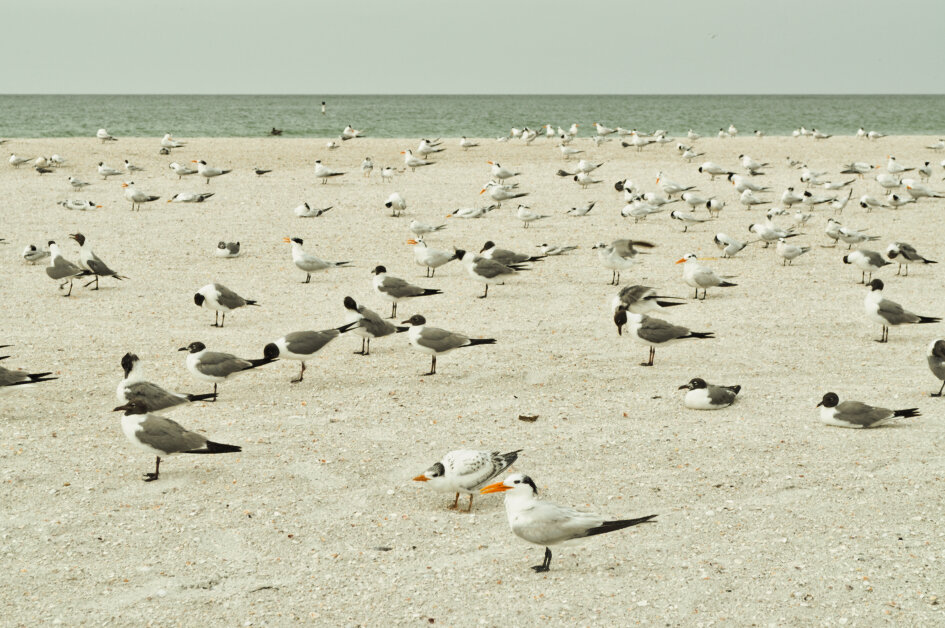During tumultuous times like those we’re all experiencing right now, it would be easy to assume that gentle souls are at a disadvantage. When you are an introverted, sensitive type living in a society that values extraversion and bold aggressiveness, you grow up feeling maladapted to your environment in general, unsuited to thriving “out there” in the world. And you’re not imagining things. Us gentle souls end up taking a back seat or outright fading into the woodwork not just because that’s where we feel most comfortable, but because those are the positions we’re forced into in a society that doesn’t value our skillset.
And now the world is changing, and fast. Many people are being forced to pivot, redefine their lives, reimagine their futures – and reestablish their emotional and psychological equilibrium on what feels like constantly shifting ground. It would be easy to think that people with those go-getter, outwardly positive personality traits like extraversion and competitive spirit would be better at these things. But I’ve observed something rather astonishing over the course of the last year of the pandemic and related economic and political upheaval. Among people I know, those who possess gentle soul traits have seemed to fare better or have actually thrived, contrary to all expectation. Could it be that gentle souls have personality traits that are adaptive in difficult times?
An obvious one is introversion. Those who are both adept at being alone and require alone time on a regular basis have almost certainly weathered the enforced quarantines and isolation of the pandemic better than extraverts. I know a number of introverts who feel their quality of life has increased substantially with work-from-home (those fortunate enough to be able to do this with their jobs). Their productivity has increased along with their peace of mind. But what about those other traits of gentle souls: the sensitivity, aversion to aggressive competitiveness, and well, gentleness? Even if you are a gentle soul who hasn’t felt these characteristics have benefited you during these times, keep reading – this might give you a new perspective as to how they can going forward.
Gentle souls’ highly sensitive nature can make them prone to mental health issues. I personally have a major anxiety disorder, and if my anxiety gets too severe, bam! Depression hits. You’d think that extraordinary stressors, like those that arise in extraordinary times, would make me worse. But in fact, the opposite is true. I’ve noticed throughout my life that I actually feel less anxiety when life is out of the ordinary, like when I’m traveling overseas. Ordinary life stuff, like going to the grocery store, stresses me to the max, but nothing calms me down like going to another country where I know no one and don’t speak the language. Weird, right?
Here’s what I think: as an HSP (highly sensitive person), I’m extremely sensitive to small stressors, and in ordinary situations, these stand out a lot, like tacks on an otherwise smooth track. But in novel situations where everything is a small stressor, in order to psychologically survive I have to rise above all of it. It’s almost like I enter a Zen calm, in which I can respond to my environment in a state of composed, alert presence. Seriously, I’m someone you want around in a crisis – just don’t ask me to get you groceries haha. A possible theory as to why this happens is this: because I have to manage so many stressors in normal daily life because of my high sensitivity, when a crisis occurs I can marshal that skillset and wield it very effectively.
Another trait that can make gentle souls seem less adaptive is our tendency to dislike competitive, conflictual interactions. Much of our understanding of human nature has its origins in evolutionary biology, in which the dominant theory is survival of the fittest, and our systems are set up to capitalize on this. It’s obvious that gentle souls are not adapted to this type of game. We simply aren’t, there’s really no question about it. But what if evolutionary biology was wrong about that whole survival of the fittest thing? More recent studies have shown that nature is in fact overwhelmingly cooperative. Competition is actually highly destructive, and this has been borne out in studies of the human realm as well (for example, see Kohn’s The Case Against Competition). What many people are really communicating when they say they like competition is that they like winning. Being an aggressive competitor may help you win, but it’s not an adaptive trait. It’s not going to help you win friends and influence people, in other words.
Gentle souls may not be adaptive in highly competitive environments, but the skills we possess, like cooperative spirit, a desire for kindness, and a capacity for empathy, make us very adaptive in general. And during tumultuous times, these are exactly the skills that are needed. So let’s not be shy about them. Being sensitive, kind, and gentle are awesome things to be right now, and we should be proclaiming that! At the very least, we should be valuing these traits in ourselves at a personal level. And we shouldn’t be afraid to say out loud things like, “I don’t find value in competition,” or “I’m glad I’m an introvert,” or “I think aggressive people bring everyone down,” or “Maybe the problem isn’t that I’m too sensitive, but that you’re not sensitive enough.” Or anything else that flies in the face of the hegemonic conventional thinking about these things. The way we can bring value to the world by valuing ourselves, so let’s do it.




